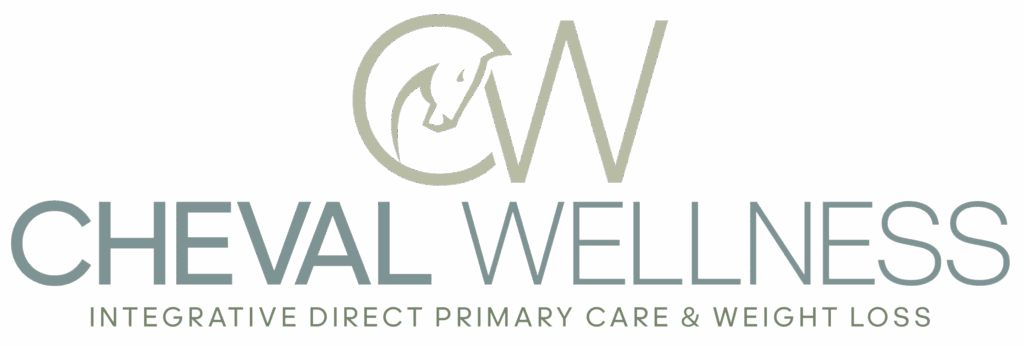Low Estradiol Symptoms: How to Recognize Hormone Imbalance Before It Affects Your Health
Estradiol, the most active form of estrogen in the human body, plays a crucial role in regulating various aspects of health, including the menstrual cycle, mood, bone density, metabolism, and cardiovascular health. When estradiol levels drop—whether due to age, medical conditions, or hormonal imbalances—the symptoms can be subtle at first but significantly impact your quality of life over time. At Cheval Wellness in New Port Richey, we help patients detect and correct low estradiol levels before they become long-term health concerns.
If you’re experiencing unexplained fatigue, mood swings, stubborn weight gain, or changes in your menstrual cycle, low estradiol could be the missing link—and the sooner it’s addressed, the better your outcome.
What Is Estradiol and Why Is It Important?
Estradiol (E2) is the dominant estrogen hormone during reproductive years and is crucial for maintaining:
- Reproductive health
- Brain function
- Cardiovascular protection
- Bone strength
- Metabolic efficiency
It is produced mainly in the ovaries in women and in smaller amounts in men through the conversion of testosterone. Estradiol interacts with nearly every system in the body, which is why symptoms of deficiency can be widespread and easily misattributed.
When hormones and your metabolism are functioning correctly, estradiol helps regulate fat distribution, insulin sensitivity, and cholesterol levels. A drop in estradiol—especially if sudden—can throw the entire system out of balance.
Common Symptoms of Low Estradiol
Understanding the early signs of low estradiol is crucial for preventing more serious health complications. These symptoms may vary depending on your age, hormonal baseline, and individual health history.
1. Irregular or Missed Periods
Estradiol is responsible for building up the uterine lining during the menstrual cycle. Low levels can lead to lighter periods, longer cycles, or skipped periods entirely. For women in perimenopause, this is often one of the first clues that estrogen production is declining.
2. Unexplained Weight Gain or Difficulty Losing Fat
Low estradiol levels reduce your body’s ability to use carbohydrates efficiently, often leading to insulin resistance and increased fat storage, especially around the abdomen. You may also notice reduced muscle tone or water retention.
3. Fatigue and Low Energy
Without sufficient estradiol, your thyroid hormone function can be impaired, resulting in a slower metabolism and persistent fatigue. Even with proper sleep and nutrition, you may still feel drained or foggy.
4. Mood Swings, Anxiety, or Depression
Estradiol plays a role in regulating serotonin and dopamine, neurotransmitters that affect mood and emotional balance. Many women with low estradiol report increased irritability, anxiety, or depressive symptoms.
5. Hot Flashes and Night Sweats
These classic vasomotor symptoms are hallmarks of estradiol decline and result from disrupted temperature regulation in the hypothalamus.
6. Vaginal Dryness or Discomfort
Estradiol supports the lubrication and elasticity of vaginal tissue. A drop in this hormone can lead to dryness, discomfort during intimacy, and increased susceptibility to infections.
7. Poor Sleep Quality
Low estrogen levels can interfere with melatonin production and neurotransmitter regulation, contributing to insomnia or frequent nighttime waking.
8. Loss of Bone Density
Estradiol helps preserve calcium in bones. Deficiency can lead to accelerated bone loss, increasing the risk of osteopenia or osteoporosis, especially after menopause.
Less Common but Important Signs of Estradiol Deficiency
- Hair thinning or hair loss
- Dry or itchy skin
- Frequent urinary tract infections
- Brain fog or reduced memory recall
- Low libido or sexual dissatisfaction
- Increased cravings for sugar or carbs
Even if these symptoms don’t seem serious at first, they often worsen over time when left untreated. That’s why early detection and professional evaluation are so important.
What Causes Low Estradiol?
While natural aging (especially menopause) is the most common cause, several other factors can lead to estradiol deficiency:
- Excessive exercise or very low body fat
- Stress-related hypothalamic dysfunction
- Eating disorders or poor nutrition
- Autoimmune conditions affecting the ovaries
- Surgical removal of ovaries (oophorectomy)
- Medications such as aromatase inhibitors or chemotherapy
- Pituitary or thyroid dysfunction
At Cheval Wellness, we conduct a comprehensive hormone panel to assess not only estradiol but also related hormones, including FSH, LH, progesterone, testosterone, thyroid hormones, and cortisol, to identify the underlying cause.
How Low Estradiol Affects Hormones and Your Metabolism
Estradiol doesn’t act in isolation. It’s tightly connected to hormones and your metabolism, meaning its decline often sets off a cascade of imbalances:
- Insulin resistance – leading to weight gain and fatigue
- Thyroid hormone inefficiency – reducing your metabolic rate
- Elevated cortisol – increasing abdominal fat and anxiety
- Progesterone imbalance – worsening PMS or sleep issues
This interconnected system is why symptoms of low estradiol can appear “unrelated” at first, but they all tie back to hormone health.
Diagnosis and Testing
To properly diagnose low estradiol, bloodwork should be done—ideally between days 3–5 of your menstrual cycle (if menstruating). We test:
- Estradiol
- FSH and LH
- Thyroid panel
- Cortisol
- Fasting insulin
- DHEA and testosterone
At Cheval Wellness, these labs are interpreted in conjunction with your symptoms, not just numbers on a chart. We take a root-cause approach to hormones and your metabolism for better outcomes.
How Cheval Wellness Treats Low Estradiol
If testing confirms estradiol deficiency, treatment options may include:
- Bioidentical hormone replacement therapy (BHRT): Custom-compounded estradiol creams, patches, or pellets designed to match your natural hormone levels
- Lifestyle and nutrition strategies: Supporting liver detox pathways, gut health, and micronutrient intake to enhance hormone balance
- Targeted supplements: Including magnesium, B-complex, DIM, or omega-3s to support estrogen metabolism
- Stress and sleep optimization: Because cortisol and sleep hormones directly impact estrogen production and sensitivity
Final Thoughts
Low estradiol is more than just a menopausal concern—it’s a systemic issue that can disrupt your metabolism, energy levels, mood, and overall health. Recognizing the early symptoms allows for proactive treatment before chronic conditions develop. At Cheval Wellness, we specialize in identifying the underlying hormone imbalances that contribute to weight gain, fatigue, and metabolic resistance.
If you’re experiencing symptoms that don’t make sense—or feel like your body is working against you—it’s time to investigate your hormone health. Contact Cheval Wellness in New Port Richey today to schedule your comprehensive hormone evaluation and take the first step toward balance, clarity, and sustainable wellness.
Dr. Angela Mineo, a DNP-trained Nurse Practitioner and founder of Cheval Wellness, is dedicated to helping women feel like themselves again through personalized hormone optimization and medical weight loss. With years of experience in ICU and primary care, she combines evidence-based medicine with a deeply compassionate, unrushed approach to patient care.

